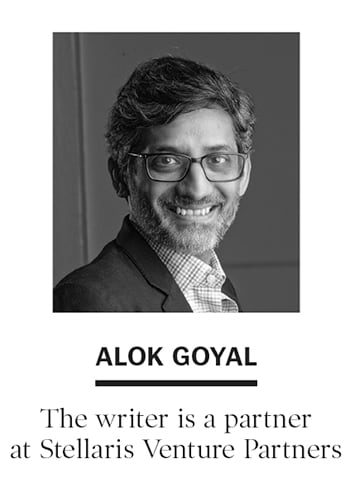 Illustration by Chaitanya Dinesh Surpur
Illustration by Chaitanya Dinesh Surpur
Paul Graham is legendary, particularly for co-founding the iconic Silicon Valley accelerator Y Combinator. I have enjoyed many of his essays and writings. Unfortunately, his take on ‘Founder Mode’ is not one of them. It lacks nuance, misrepresents founders and managers, and is populist at best.
 As a VC (venture capitalist), I know where, or rather who, my bread is buttered by—the founders. After a failed attempt at being an entrepreneur 30 years ago and several feeble attempts, I am fortunate to be in a job as close to this breed as possible. As a VC, I believe it takes something special to dream and have the foolishness (read courage) to pursue your dreams. Few others bring the passion, learning agility, first principles thinking, and a disregard for organisational hierarchies that founders do.
As a VC (venture capitalist), I know where, or rather who, my bread is buttered by—the founders. After a failed attempt at being an entrepreneur 30 years ago and several feeble attempts, I am fortunate to be in a job as close to this breed as possible. As a VC, I believe it takes something special to dream and have the foolishness (read courage) to pursue your dreams. Few others bring the passion, learning agility, first principles thinking, and a disregard for organisational hierarchies that founders do.
A significant issue with the argument is survivorship bias. Figures like Steve Jobs, Brian Chesky, Jensen Huang and Elon Musk are extreme outliers. Attempting to replicate their behaviour without acknowledging the unique context of their successes is risky and often misguided. For instance, Philippe Petit, the French artist, gained fame for his unauthorised high-wire walk between the Twin Towers of the World Trade Center in New York City in August 1974. While his story is exciting, it’s unwise to consider him a role model for every day decisions. Similarly, having a high number of direct reports or needing to be deeply involved in every detail—which Graham compliments—is not a recipe for success, but rather a reflection of the extraordinary capabilities of certain individuals. They were successful despite these traits, and unlikely because of them.
There are countless examples of entrepreneurs using the notion of ‘founder mode’ as an excuse to disregard feedback and insights from customers and team members. By prioritising their intuition over external input, founders may risk building products that fail to meet the needs of their target market. It’s important to recognise that not everyone is Jobs. Founder mode often becomes an excuse for many founders to hide their inadequacies, or sometimes just a delusional belief that they are as capable as Jobs. Similar logic is used to justify the inability to hire, build an effective organisation or why their leadership team cannot be trusted. Just about everything can be brushed under the founder mode carpet.
The discourse also overlooks the critical contributions of talented managers. Consider Facebook’s rise, which owes much to Sheryl Sandberg’s leadership, or Google’s success, which was significantly influenced by Eric Schmidt. Jobs has undoubtedly been one of the most iconic founders, but Apple has continued to thrive under Tim Cook, with its market cap increasing tenfold since he became CEO. Leaders like Satya Nadella, Lou Gerstner, Jack Welch and Lee Iacocca have delivered extraordinary results by effectively managing their companies.
(This story appears in the 13 December, 2024 issue
of Forbes India. To visit our Archives, click here.)

